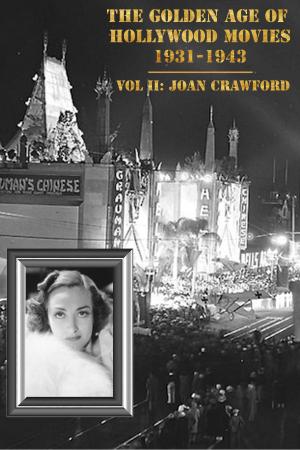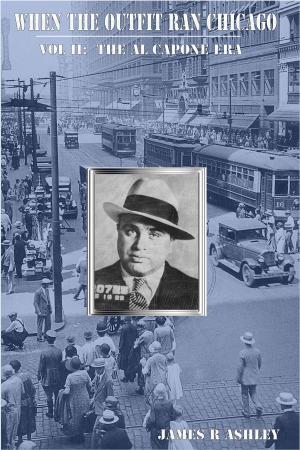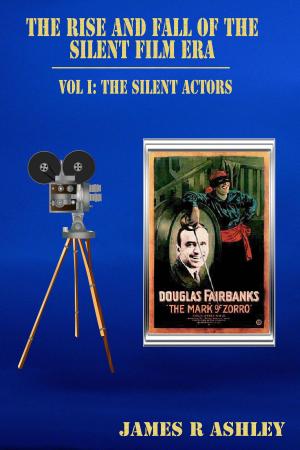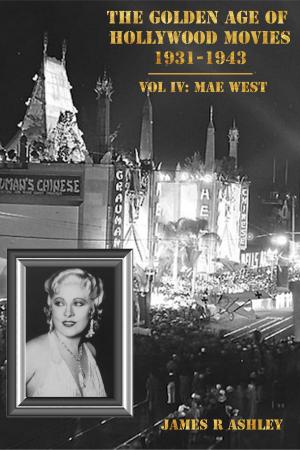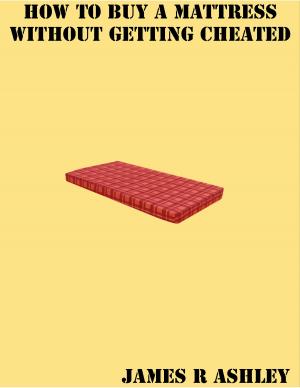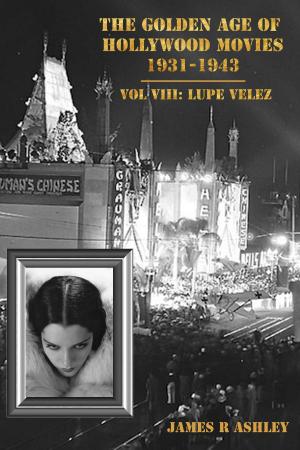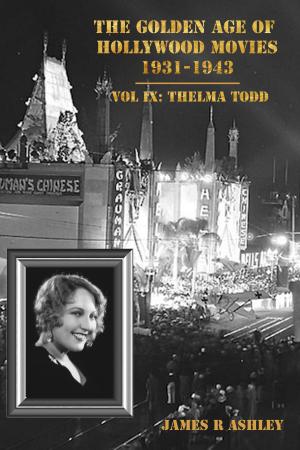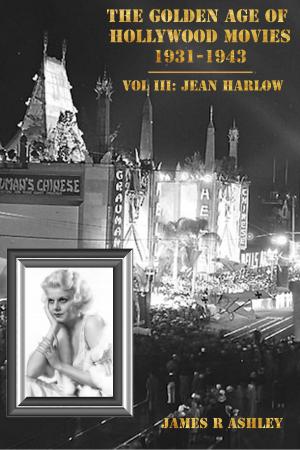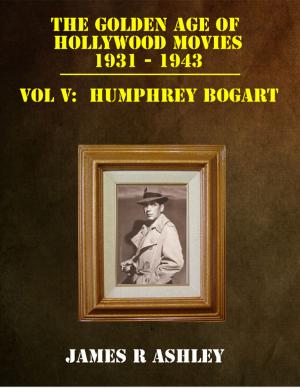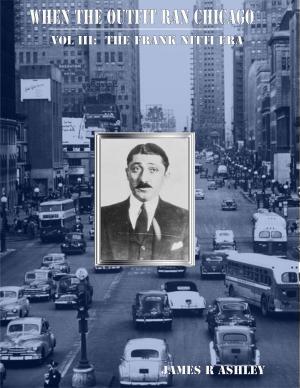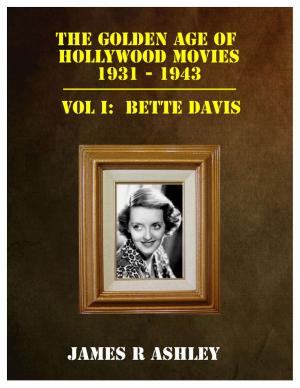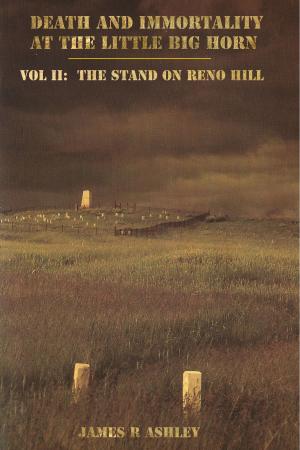| Author: | James R Ashley | ISBN: | 9781301023660 |
| Publisher: | James R Ashley | Publication: | August 19, 2013 |
| Imprint: | Smashwords Edition | Language: | English |
| Author: | James R Ashley |
| ISBN: | 9781301023660 |
| Publisher: | James R Ashley |
| Publication: | August 19, 2013 |
| Imprint: | Smashwords Edition |
| Language: | English |
Clark Gable was born into a dysfunctional family, his mother being a psychotic who was said to have died insane when he was a year old and his father, who believed that brawn over brain was the only standard for measuring manhood, was a oil wildcatter, who preferred being out in the field to spending time with his family. Big for his age, Clark soon became a laughing stock in school and dropped out at the age of 16, caring little about an education. When Clark developed an interest in the theater, his father belittled him as a sissy and got him a number of brutal manual-labor jobs, all of which he hated, so that he could prove his manhood to him.
When Clark attempted get a foothold in working in the theater, it was a disaster. He was big, clumsy, had a high-pitched voice, bad teeth, and had a look about him as if he was perpetually ill. In the small parts he was given he stumbled around the stage in his clumsiness, knocking props over; forgot his lines and marks; and his high-pitched voice brought laughs during what were supposed to be dramatic moments. He was hired by a troupe at no pay, only because of his strength to move heavy props around. The troupe manager, however, believed Clark had absolutely no acting talent and didn’t even want him around, despite the fact that he didn’t cost them anything, so he was eventually let go.
This would have crushed almost any other person’s self respect and confidence, but not Clark’s; he knew what he wanted to do for his life’s work and never wavered from it. And whatever it took to achieve his goal he would do, no matter what humiliations he would have to suffer along the way. To learn the acting trade he married an “old-bag” know-it-all, who did nothing but criticize him; but she taught him what he needed to know to be a successful actor. Clark then married a rich “old-bag” panderer, and learned how to dress and how to act like the star he was to become. Clark now made his mark in the theater and soon he was a matinee idol women were swooning over.
In Clark’s 1st attempt at breaking into the movies, Jack Warner, at Warner Brothers, wanted to know why John Barrymore would recommend to him a man who had a jug-head with ears the size of an elephant. At MGM, it didn’t go much better, as Irving Thalberg could not even stand to watch the end of Clark’s screen test in order to reject him because of his enormous ears. And yet, when Minna Wallis, Clark’s agent, insisted that Thalberg look at the screen test again and just focus on his presentation, he then saw something there, a smoldering intensity and a screen presence that convinced him to give Clark a contract.
Like most beginning contract actors of the day, Clark was put in a number of non-descript parts that would do him little credit, but one day he was cast for the male lead in Red Dust instead of John Gilbert, and Clark’s movie career took off in overdrive. He was an entirely new kind of romantic star; men sought to emulate him and women wanted to be seduced by him. He was a macho tough-guy who did the manly pursuits of drinking, hunting, and woman-chasing and would treat a woman rough, if she deserved it, or tender, if he was in the mood to.
Designated the king of Hollywood by his millions of fans, Clark went on to make a number of classic movies, which generation after generation became the most popular and watched movies ever made. Even today, over 70 years after Clark’s heyday, his movies are widely watched and enjoyed. He played only one kind of role throughout his life, that of the wise-cracking tough guy, but it was the only one his fans wanted to see him in and the one they wanted to remember him by. And although Clark’s persona is now passé, the continuing popularity of what he had achieved in the movies will never fade. So turn the page and see how a man who started out with nothing achieved movie immortality as the greatest romantic film star of them all
Clark Gable was born into a dysfunctional family, his mother being a psychotic who was said to have died insane when he was a year old and his father, who believed that brawn over brain was the only standard for measuring manhood, was a oil wildcatter, who preferred being out in the field to spending time with his family. Big for his age, Clark soon became a laughing stock in school and dropped out at the age of 16, caring little about an education. When Clark developed an interest in the theater, his father belittled him as a sissy and got him a number of brutal manual-labor jobs, all of which he hated, so that he could prove his manhood to him.
When Clark attempted get a foothold in working in the theater, it was a disaster. He was big, clumsy, had a high-pitched voice, bad teeth, and had a look about him as if he was perpetually ill. In the small parts he was given he stumbled around the stage in his clumsiness, knocking props over; forgot his lines and marks; and his high-pitched voice brought laughs during what were supposed to be dramatic moments. He was hired by a troupe at no pay, only because of his strength to move heavy props around. The troupe manager, however, believed Clark had absolutely no acting talent and didn’t even want him around, despite the fact that he didn’t cost them anything, so he was eventually let go.
This would have crushed almost any other person’s self respect and confidence, but not Clark’s; he knew what he wanted to do for his life’s work and never wavered from it. And whatever it took to achieve his goal he would do, no matter what humiliations he would have to suffer along the way. To learn the acting trade he married an “old-bag” know-it-all, who did nothing but criticize him; but she taught him what he needed to know to be a successful actor. Clark then married a rich “old-bag” panderer, and learned how to dress and how to act like the star he was to become. Clark now made his mark in the theater and soon he was a matinee idol women were swooning over.
In Clark’s 1st attempt at breaking into the movies, Jack Warner, at Warner Brothers, wanted to know why John Barrymore would recommend to him a man who had a jug-head with ears the size of an elephant. At MGM, it didn’t go much better, as Irving Thalberg could not even stand to watch the end of Clark’s screen test in order to reject him because of his enormous ears. And yet, when Minna Wallis, Clark’s agent, insisted that Thalberg look at the screen test again and just focus on his presentation, he then saw something there, a smoldering intensity and a screen presence that convinced him to give Clark a contract.
Like most beginning contract actors of the day, Clark was put in a number of non-descript parts that would do him little credit, but one day he was cast for the male lead in Red Dust instead of John Gilbert, and Clark’s movie career took off in overdrive. He was an entirely new kind of romantic star; men sought to emulate him and women wanted to be seduced by him. He was a macho tough-guy who did the manly pursuits of drinking, hunting, and woman-chasing and would treat a woman rough, if she deserved it, or tender, if he was in the mood to.
Designated the king of Hollywood by his millions of fans, Clark went on to make a number of classic movies, which generation after generation became the most popular and watched movies ever made. Even today, over 70 years after Clark’s heyday, his movies are widely watched and enjoyed. He played only one kind of role throughout his life, that of the wise-cracking tough guy, but it was the only one his fans wanted to see him in and the one they wanted to remember him by. And although Clark’s persona is now passé, the continuing popularity of what he had achieved in the movies will never fade. So turn the page and see how a man who started out with nothing achieved movie immortality as the greatest romantic film star of them all

